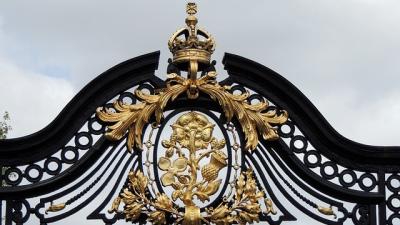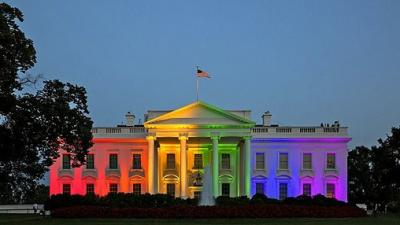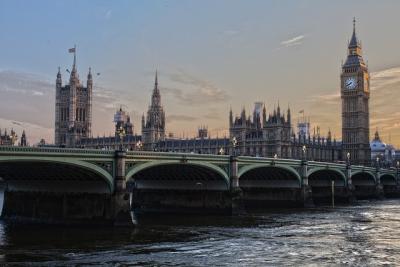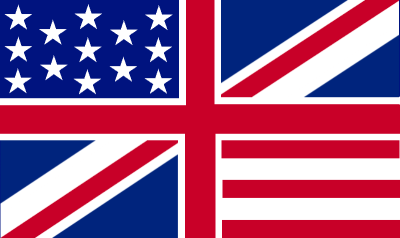In my previous Region Report I complained about the Yanks’ faux republicanism (see: LINK). In Blighty the problem is the reverse: false modesty, pretended irrelevance, and the snobby casualness of insisting on calling everyone by his first name, as if one could presume intimacy with anyone, anywhere, high or low, common or royal. Yes, but there’s the rub: we live in a monarchy, constitutional but still a monarchy, and so we cannot exactly just go around slapping every Tom, Dick, or (especially) Harry on the back and saying ‘How ya doing, Mate?’ We might like them to be nice rather than cruel, but we necessarily balk when they – our betters – persist in being ‘just like us.’
We enjoyed it when, circa 2001, Harry was ‘just like us,’ a lad, driving a modified VW Golf, chilling with his friends in some parking lot. But at that time he was a mere boy prince with a troubled family history to boot. We expected he might – in his youth – do much worse than eventually get caught on camera with ‘bird in hand’ whilst partying in Las Vegas (consider his Uncle Andrew in this respect). But when he became a man, we thought he would grow up and grow into the obligation that is the flip side of any noblesse. We hoped to admire him.
That development, alas, has not happened. He is still a boy-prince, but now in a man’s body. By his own account in his recent memoir, Spare, growing up, as his older brother was made to, was never wholly expected of him in his stand-by role. He thus may not even have expected it of himself. He alerts us to the purported beginnings of the problem with a name, writing that his father ‘allegedly said to Mummy the day of my birth: Wonderful! Now you’ve given me an Heir and a Spare.’
In Harry’s time of not maturing, he has fallen wholly into playing the classical role of second sons, or ‘spares,’ in literature and history. Like step-mothers, spares have a bad reputation of causing familial trouble. Where the stakes are much higher – royally high – such sibling rivalry easily turns deadly. Second sons or spares are always in the shadow – even when more virtuous – with no crown to look forward to, and in place of a regnal number one gets a negative position from the throne ‘-1.’ One knows he is just one heartbeat away from possessing everything. But that heart beats with shared blood. And that blood is also responsible for the health of a people. Harry writes in Spare of the sibling rivalry that had unwittingly emerged: ‘In some ways [William] was my mirror, in some ways he was my opposite. My beloved brother, my arch-nemesis, how had that happened?’
As heir to this tradition of spares, Harry’s and William’s relationship has begun to play out as History, rather than just as intrigue. The universal story standing behind the Struggles of the Brothers Windsor (and their Not So Merry Wives) is not only high human drama but also nationally and perhaps even civilisationally important.
The biblical story of Cain and Abel (Genesis 4) anticipates the fraught relation of differently talented siblings to an almighty but partial Father. Here the vicious first-born kills the virtuous spare, who might have been in danger of succeeding him, at least in the Lord’s eyes. For, when they each had brought sacrifices, Cain’s was ‘fruits of the soil’ whereas Abel’s was ‘fat portions from some of the firstborn of his flock’, the Lord ‘looked with favour on Abel and his offering’. Cain responds by inviting his brother to a field and then kills him. The Lord punishes Cain’s great sin severely. The text is unambiguous about curbing the source both of sibling rivalry and of the divine displeasure at the insufficient fruits of one’s work, which is personal wrongdoing.
A more puzzling biblical story, which might fuel the envy of spares everywhere, is Jacob conspiring with his mother to gain his older twin, Esau’s, birthright and blessing through trickery of his brother and deception of their father. Jacob had been born ‘grasping at the heels’ of his slightly older brother, and continues to do so until he topples his brother. Esau’s earlier nonchalance did not help his case. When once famished, Esau seems to agree to Jacob insisting he make an oath to sell his birthright for a bowl of lentil stew. Sometime later their aged father confers on Jacob, disguised as Esau, his irrevocable blessing, which is the seal of the birthright that sets Jacob to rule over Esau. In the end, even as the deception is revealed, nothing is restored to Esau. Jacob wins!
In English literature the most famous portrayal of birthright appropriation is the pre-action that gets Shakespeare’s Hamlet started. Claudius has killed King Hamlet and taken not only his throne but also the Queen, formerly his brother’s wife. Prince Hamlet fails to act until it is almost too late, resulting not only in the death of Claudius but also of nearly everyone else important to the health of Denmark, including himself. Fortinbras – meaning, literally, ‘strong arm’ – then comes and takes over the kingdom. And that is the national importance of this struggle for the meaning of the Monarchy in Great Britain, which the squabbles of the Brothers Windsor are displaying in microcosm.
On the one hand there is the reaffirmation of the peaceable kingdom, or ‘England as Promised Land in the making,’ which the unofficial national anthem suggests: no rest from toil ‘till we have built Jerusalem.’ Each generation must approach that continuing work by its own lights. In this way, Prince William takes someone as his bride who is eminently bourgeois, even formerly named ‘Middelton,’ i.e. ‘middle town.’ He has made a habit of simultaneously affirming the hereditary principle of peaceful poly-generational transition of power and culture in Britain, whilst making necessary adaptations to the times. He, like his grandmother, and his father from time to time, has been willing to turn his self and its desires inward, allowing the persona of the Prince, the living mask that is a public-facing symbol of the nation, to become distinct from the person of William, who might not like to dance or to eat broccoli or hate having photos taken, but as Prince William, would oblige.
On the other hand there is the Empire of the Self, which spells the end of Kingdoms. It begins in the child, with the voice of the self, confusing its passions with its identity, and unable to situate itself in society among others. It whispers ‘non serviam’ to itself until it must scream it to others who ask something of it, especially to anyone asking for it to be different from what it thinks it truly is. Rebellion at participation in anything that one has not chosen for oneself is the vice that forms from this beginning. Harry alerts us to this voice in himself, when he writes in Spare:
It occurred to me then that identity is a hierarchy. We are primarily one thing, and then we're primarily another, and then another, and so on, until death – in succession. Each new identity assumes the throne of Self, but takes us further from our original self, perhaps our core self – the child. Yes, evolution, maturation, the path towards wisdom, it's all natural and healthy, but there's a purity to childhood, which is diluted with each iteration.
Harry remains more relatable to us – if less likeable – than William, because he is more similar to many of us. We have become psychologically indistinguishable from spares, neglected princelings who are full of unfulfilled desire and resentment – each with a ‘throne of Self’ seeking imperium. Harry just happens to have the excuse of actually being a spare heir to an actual throne. The rest of us are mere pretenders.
As a nation, Britain will need to decide which Windsor to follow. Will it be the hard road of self-adaptation, or the presumed easy street of self-affirmation? Will it be the less-trodden trail of maintaining the historical Constitution, or the grasping at the heels of history in order to topple the order? Will it be Jerusalem then, or Babylon now? Britain, like Prince Hamlet, must choose wisely. For, Fortinbras, the ‘Strong Arm’, is always waiting in the field for Denmark to fail.
Read also
The US: The Next Political Third World?
There is a popular historical debate about when Rome’s decadence took it so low that it was thereafter unable to recover its former secular glory. Was it when birth rates of the Senatorial class fell to the point that they could not reproduce themselves (that is, without the mass adult adoption which they practiced)? Was it the advent of the new religion, based not on the will of the powerful or the powerful’s gods, but on the ‘poor in spirit’, meek, and persecuted, who were then inheriting the Roman earth? Was it earlier, when the Republic evolved into the Empire, and gradually lost its ability to hold the provinces to a Roman pattern?
Vernon Rogers
Anglospherical: The Region Report on the Anglosphere - April 2023
As we learnt in the March Region Report on the Anglosphere (LINK), Scotland does not want to be left behind in the race to replace heritage British leaders with those from the former British colonies of Asia.
Vernon Rogers
Anglospherical: The Region Report on the Anglosphere - January 2023
National politics in the US has become crasser over the past six decades, and often the Republicans have been to blame for pushing the envelope. Richard Nixon’s paranoia forcing his resignation from the presidency or Newt Gingrich’s bellicose tenure as Speaker of the House (resulting also in a forced resignation) could serve as case-in-point.












Comments (0)